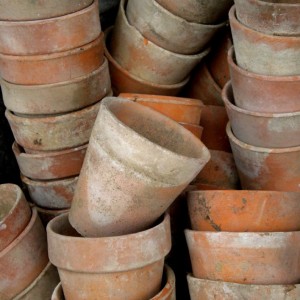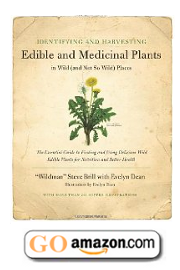 In this day and age, there is a pharmaceutical for everything. But that doesn't mean that some people wouldn't rather choose to go all natural. If you are a fan of all natural treatments, a healing herb garden may be just what you need. Planting a healing herb garden is simple, and there are a variety of plants out there to choose from. Here are six worth considering.
In this day and age, there is a pharmaceutical for everything. But that doesn't mean that some people wouldn't rather choose to go all natural. If you are a fan of all natural treatments, a healing herb garden may be just what you need. Planting a healing herb garden is simple, and there are a variety of plants out there to choose from. Here are six worth considering.
1. Basil
Basil will be a great addition to your healing herb garden. Basil is excellent for cooking and is useful for reducing fevers. Rubbing basil leaves on irritated skin may also give you some relief. The essential oils from basil have healing capabilities as well. These oils have been known to improve mood, relieve stress, and even focus concentration.
2. Dandelions
These yellow flowers are typically considered a nuisance to your lawn or your garden. Dandelions may be considered weeds, but they are powerful weeds. You may be surprised to know that dandelions are great for your digestive system. Whether you choose to drink some dandelion tea or toss some leaves in your salad, you will reap the many benefits of this weed. Dandelion petals are also full of nutritional value and can be quite tasty.
3. Rosemary
Another herb generally associated with cooking, but good for more than just your taste buds, is rosemary. Recent studies have shown that rosemary extract can actually protect your DNA from cancer causing free radicals. Other benefits of using rosemary include stimulating your digestive system, immune system, and concentration.
Picture Credit - Marc Kitchen-Smith Pots
4. Ginger Root
Ginger root grows best in warmer climates and is easily grown from ginger root purchased at the grocery store--if it is not too dried out. If you are looking to grow a successful healing herb garden that will give you the most benefits, your garden wouldn’t be complete without ginger. This herb is fantastic for your digestive system and can help to soothe everything from gas pains to morning sickness. If you are among one of the unfortunate people who get motion sickness, headaches, or migraines, ginger may be what you need to relieve your symptoms. Ginger has also been known to help prevent blood clotting and high blood pressure.
5. Lavender
Lavender's beautiful color and pleasing smell will really make a good addition to your garden. The essential oils extracted from lavender are commonly used to help sooth anxiety and promote more restful sleep. Aromatherapists also use the powerful fragrance of lavender to treat things like headaches, nervousness, and exhaustion.
6. Peppermint
Peppermint is a very useful herb to have. It can be used to treat a variety of different things. Science says that peppermint may be helpful to relieve symptoms of irritable bowel syndrome. These symptoms would include things like bloating, gas, and diarrhea. Peppermint can also be used in the form of a cream to help soothe skin irritations caused by hives, poison ivy, or poison oak. The next time you have a cold, are congested, or have a headache, peppermint may be able to help you as well. This herb is one that everyone should have in their garden.
// ]]>
Before Using Herbs
When using the healing capabilities of herbs, you should always be cautious. Herbs may be all natural, but that doesn’t mean that they are any less like traditional medicines. When using herbs, be sure to do your research since there is still the possibility of an allergic reaction or side effects. You should also talk with your physician before trying anything new--just to be on the safe side.
Guest post from Payton Price. Payton writes for TermLifeInsurance.org.









